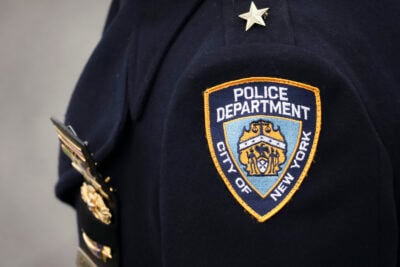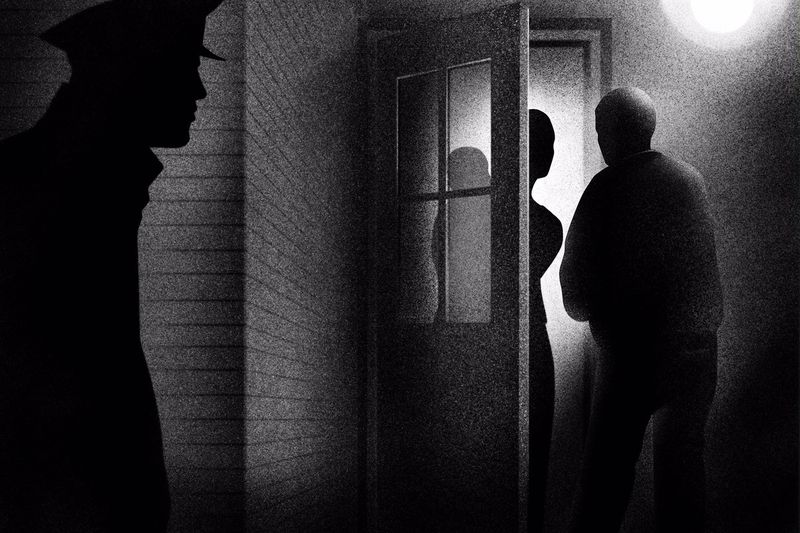
Series: The NYPD Files
Investigating America’s Largest Police Force
New York City Mayor Bill de Blasio has called to convene a task force that will address problems exposed last December by a ProPublica investigation into how the city polices the sex trade. The problems include allegations of misconduct, abuse, coercion and exploitation by the New York Police Department’s vice unit and the fact that more than 90% of those arrested on the charge of patronizing a prostitute are nonwhite — a statistic experts say is out of sync with the reality of who buys sex in the city.
De Blasio laid out his intentions as part of a broader draft criminal justice reform plan released last week. At a news conference on Tuesday, he expressed support for state legislation that would decriminalize the sale of sex.
“We are calling on the state to end criminal penalties for sex workers and help us reach those in need without requiring involvement with the criminal justice system,” de Blasio said in a subsequent statement.
But advocates and attorneys who represent people arrested for selling sex said the administration’s proposals are vague and don’t go far enough.
“It’s progress in the sense that they’re identifying important issues that need to be addressed,” Leigh Latimer, supervising attorney of the Exploitation Intervention Project at The Legal Aid Society, told ProPublica. “But it feels like planning to make a plan. I wish there were actual actions being contemplated.”
The mayor’s office and the NYPD produced this second installment of a draft criminal justice reform plan in response to a June 2020 directive from Gov. Andrew Cuomo, following protests over the killing of George Floyd by Minneapolis police. They are currently finalizing the plan, which covers a range of policing issues in addition to sex work.
If the plan is approved by the City Council, a task force composed of NYPD members and city officials will generate proposals aimed at addressing allegations against the vice unit, developing “pre-arrest diversion programs” and devising strategies to address the “racialized policing of sex work.” The NYPD would also be tasked with finding “alternative methods” to pursue human traffickers without harming sex workers.
The ProPublica investigation in December revealed that NYPD prostitution stings have led to numerous allegations of false arrest and sexual misconduct by police officers, and documented significant racial disparities in who is arrested for buying and selling sex in New York. Our story also found that many vice officers don’t believe the unit was successful in stamping out trafficking; many said they were driven to make arrests by the desire to increase their overtime pay. A spokesperson for de Blasio said that work on the sex trade portion of his reform plan began before the ProPublica story was published. Advocates for sex workers have been criticizing the conduct of vice officers for years.
Following the investigation, a dozen city and state elected officials, including City Council Speaker Corey Johnson, called on the NYPD to disband its vice unit entirely.
A group of lawmakers also sent a letter to leaders of the City Council and the state Assembly and Senate asking for an oversight hearing to examine misconduct allegations against the NYPD vice unit.
The offices of Johnson, Assembly Speaker Carl Heastie, and Senate Majority Leader Andrea Stewart-Cousins did not immediately respond to questions this week about whether the legislators have plans to hold such hearings.
Brooklyn Defender Services, one of the largest public defender agencies in the city, also criticized de Blasio’s proposal.
“The mayor’s plan does nothing to ensure the safety of sex workers or address the racial disparities in policing,” said Jillian Modzeleski, a senior attorney at Brooklyn Defender Services who represents people charged with prostitution. “‘Pre-arrest diversion programs’ is just another name for state surveillance, and still means that police will interact with sex workers under the pretext of connecting them to services."
The NYPD did not answer questions for this story, instead referring ProPublica to sections of the report that it helped author. In previous statements, the NYPD did not answer questions about the specific allegations of false arrest or sexual misconduct in the original story, but said it “maintains heightened vigilance and robust oversight over all of its undercover operations.” The department also said it deploys officers where crime is reported, without consideration of race.
De Blasio spokesperson Avery Cohen defended the plan as a wide-reaching and ambitious work in progress.
“The draft plan sets forth a bold, concrete vision of how to transform policing in New York City, including the largest ever expansion of police oversight” since the founding of the city’s Civilian Complaint Review Board, wrote Cohen in an emailed response to questions. “While there is no silver bullet for undoing hundreds of years of biased policing, this is a tremendous step forward that will set a clear marker for the next administration.”
Cohen also sent ProPublica several quotes from advocates who support the proposal. In one statement, JoAnne Page, president of the Fortune Society — a nonprofit focused on alternatives to incarceration — said her organization “applauds the de Blasio administration and the NYPD for focusing on strategies that combat trafficking and hold traffickers accountable while providing critical support and protections to their vulnerable victims.”
Reached for additional comment, Page told ProPublica: “This is certainly a good first step, but more needs to be done. We stand with our colleagues like the Legal Aid Society and Brooklyn Defender Services regarding important next steps in this reform effort."
De Blasio’s announcement comes on the heels of more concrete reform efforts on the issue by local district attorneys and the state legislature in the months since the ProPublica investigation.
Earlier this year, Brooklyn District Attorney Eric Gonzalez announced that he would vacate more than 200 warrants related to prostitution and dismiss the underlying charges. This week, Queens District Attorney Melinda Katz asked a judge to dismiss nearly 700 similar cases in her borough.
“Instead of prosecuting these defendants, we need to provide a helping hand by connecting them with meaningful services, support options and the necessary tools that will assist them to safely exit the sex trade if that is what they choose to do,” Katz said in a statement.
In February, the state legislature repealed the law that had made it illegal to loiter for purposes of prostitution. The law had come to be known as the “walking while trans” ban, because critics had said for years that it left too much discretion to police and was used to discriminate against and unfairly arrest transgender people.





